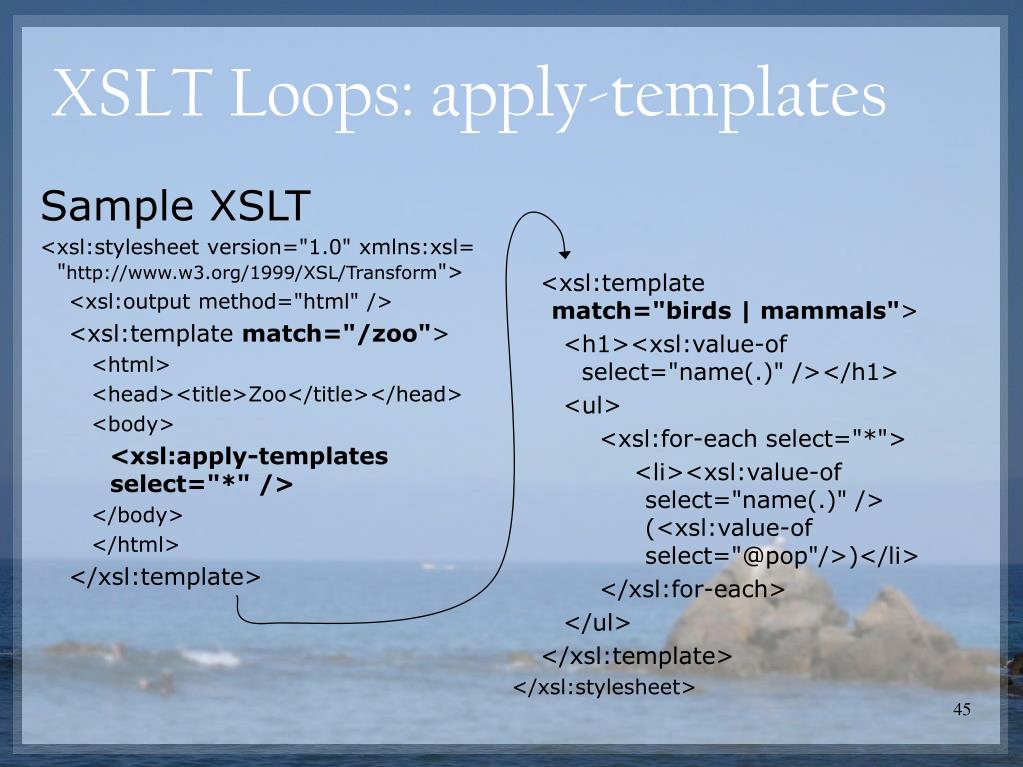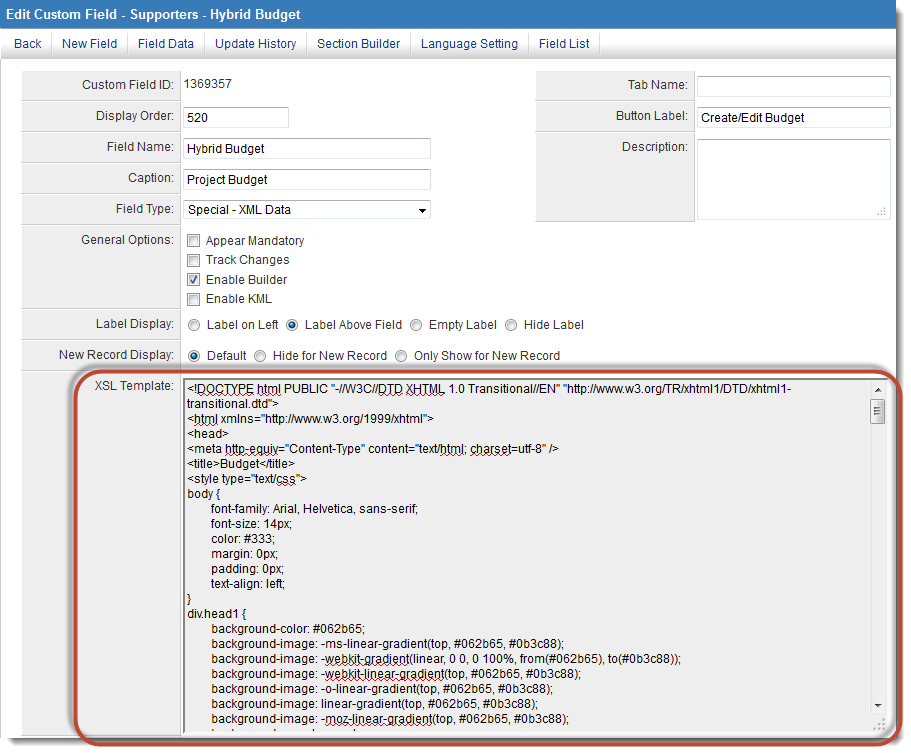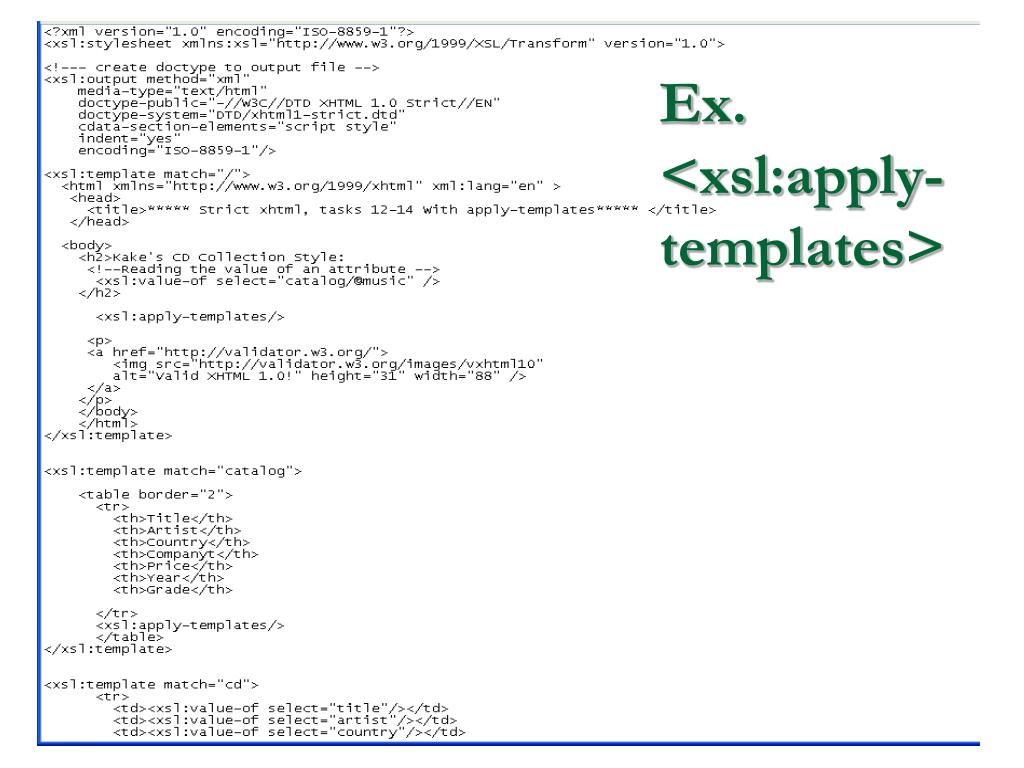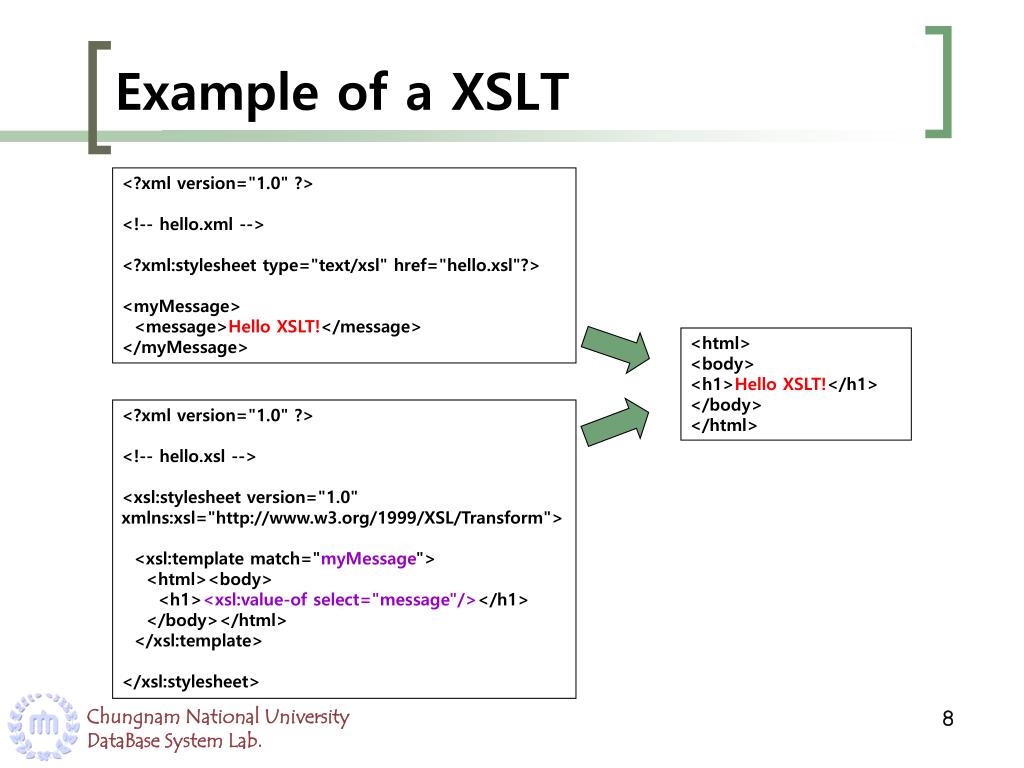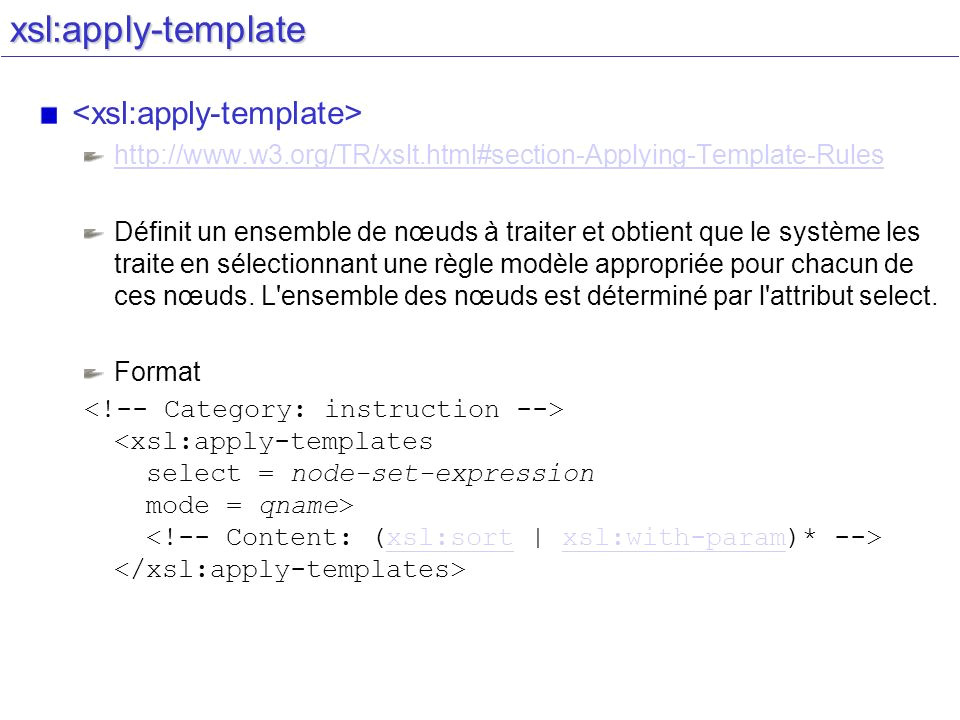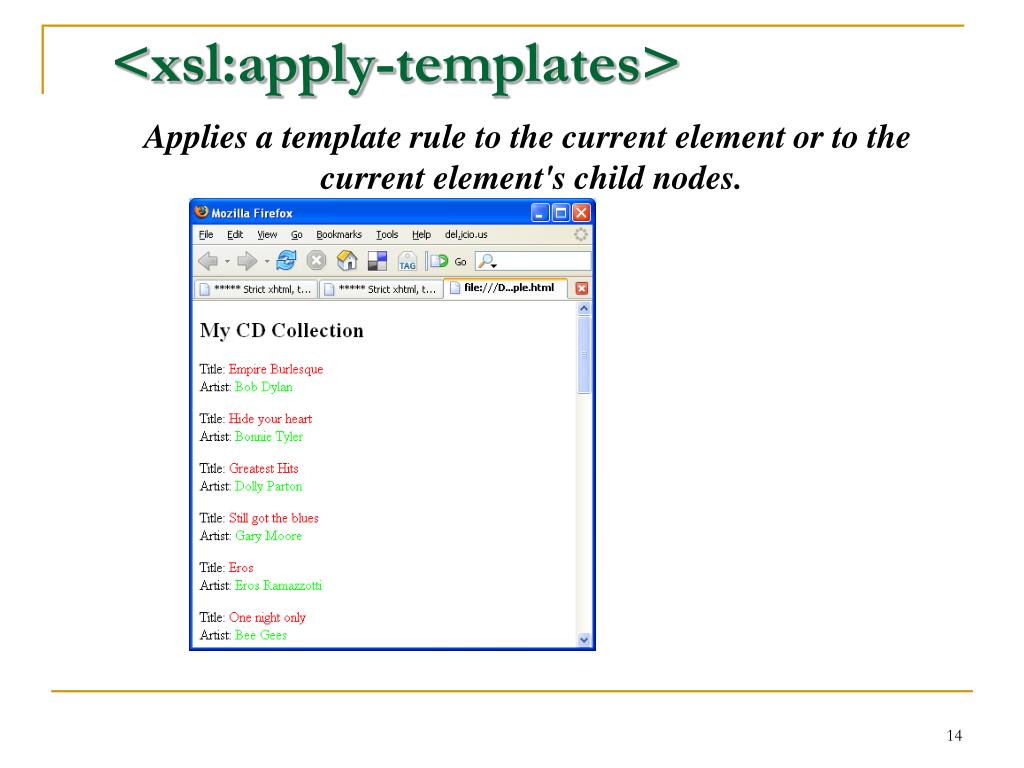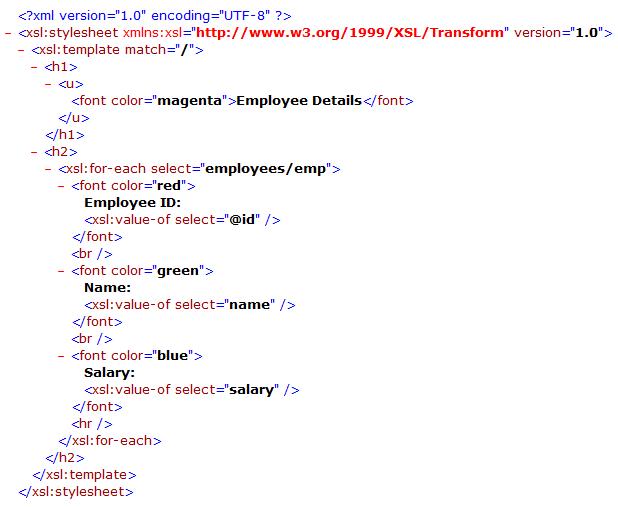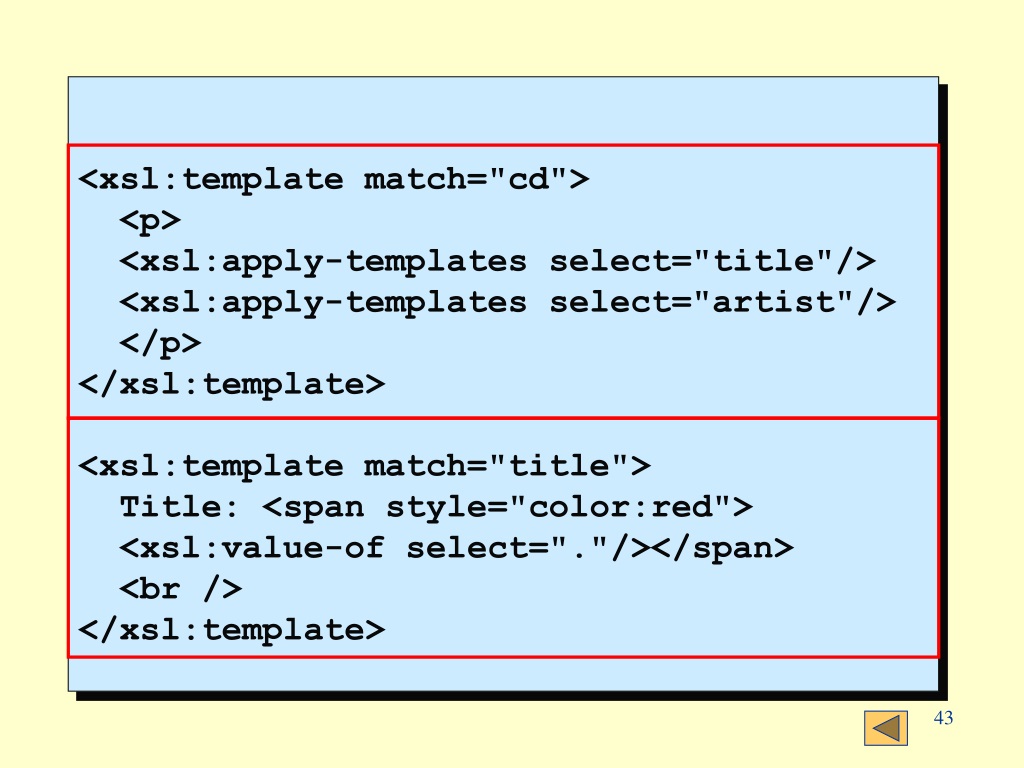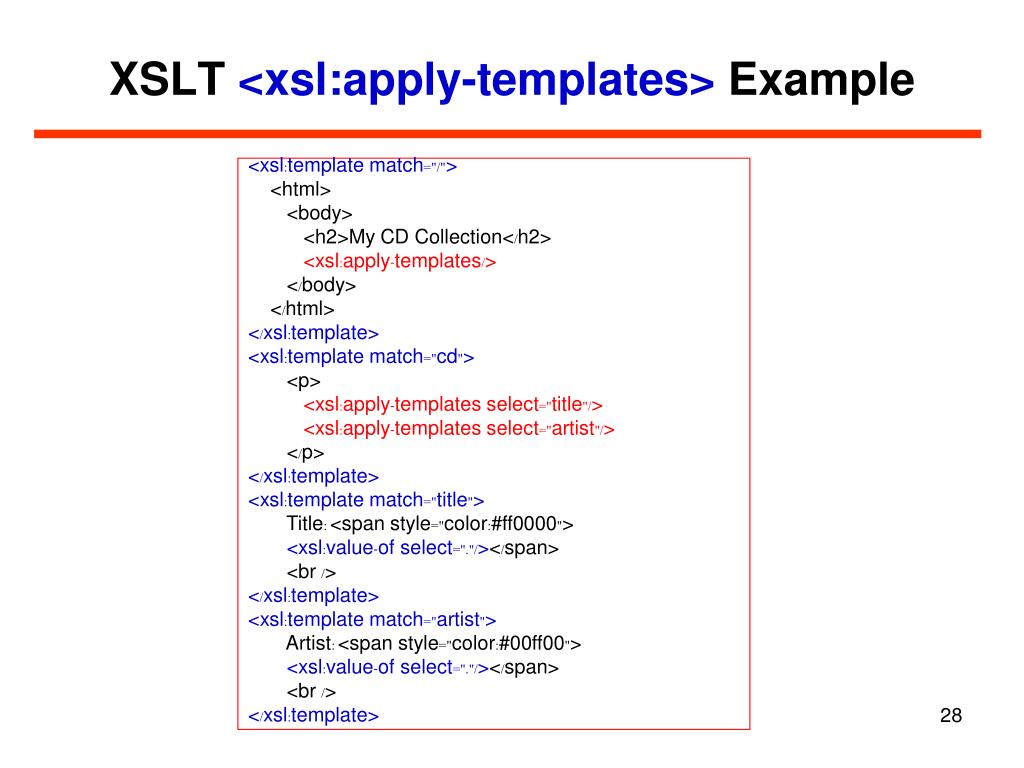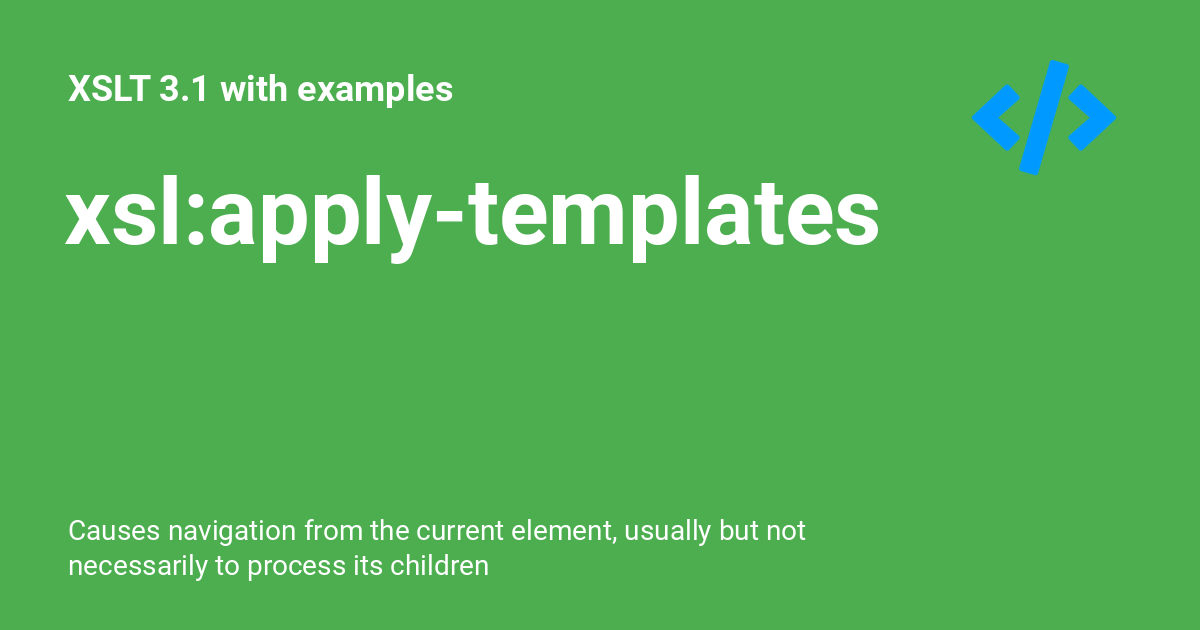Xsl Apply Template
Xsl Apply Template - Matching template with low priority is not considered in. Web 2 answers sorted by: Web the xslt element is used to tell xslt processor to find the appropriate template to apply according to the type and context of each selected node. Priority number of a template. Causes navigation from the current element, usually but not necessarily to process its children. Web the element applies a template to the current element or to the current element's child nodes. Web you use to invoke the :s you have defined. As it happens, the template applied does not actually add. The mode attribute is optional. Web directs the xslt processor to find the appropriate template to apply, based on the type and context of each selected node. Calls a matching template for each node in the set. Causes navigation from the current element, usually but not necessarily to process its children. If we add a select attribute to the <xsl:apply. Web the xslt element is used to tell xslt processor to find the appropriate template to apply according to the type and context of each selected node.. Web you use to invoke the :s you have defined. Web the element applies a template to the current element or to the current element's child nodes. Web the <<strong>xsl</strong>:template> element is used to build templates. The mode attribute is optional. Web learn how to apply an xsl transformation in an ado application by using the clientsidexml and xsl properties. Calls a matching template for each node in the set. It is used to provide modularity so that you can group templates together sharing the same value. The match attribute can also be used to. Web the xslt element is used to tell xslt processor to find the appropriate template to apply according to the type and context of each. This is particularly useful when you need to map data. If you also want to change the current node (context node), you can. Web learn how to apply an xsl transformation in an ado application by using the clientsidexml and xsl properties of the sqlxmloledb provider. Web 2 answers sorted by: Matching template with low priority is not considered in. Matching template with low priority is not considered in. Pattern which signifies the element (s) on which template is to be applied. It is used to provide modularity so that you can group templates together sharing the same value. Web the xslt element is used to tell xslt processor to find the appropriate template to apply according to the type. Web the <<strong>xsl</strong>:template> element is used to build templates. Each selected node is processed using the best. Priority number of a template. Web the xslt element is used to tell xslt processor to find the appropriate template to apply according to the type and context of each selected node. Web 2 answers sorted by: The match attribute is used to associate a template with an xml element. If you also want to change the current node (context node), you can. The match attribute can also be used to. Pattern which signifies the element (s) on which template is to be applied. As it happens, the template applied does not actually add. Convert xml data from the source format to the target format using xslt templates. This is particularly useful when you need to map data. If you also want to change the current node (context node), you can. If we add a select attribute to the <xsl:apply. Web learn how to apply an xsl transformation in an ado application by using. If we add a select attribute to the <xsl:apply. If you also want to change the current node (context node), you can. Priority number of a template. Web directs the xslt processor to find the appropriate template to apply, based on the type and context of each selected node. Causes navigation from the current element, usually but not necessarily to. Matching template with low priority is not considered in. The mode attribute is optional. Priority number of a template. Web directs the xslt processor to find the appropriate template to apply, based on the type and context of each selected node. It is used to provide modularity so that you can group templates together sharing the same value. Matching template with low priority is not considered in. Calls a matching template for each node in the set. Convert xml data from the source format to the target format using xslt templates. Pattern which signifies the element (s) on which template is to be applied. The match attribute is used to associate a template with an xml element. The match attribute can also be used to. As it happens, the template applied does not actually add. It is used to provide modularity so that you can group templates together sharing the same value. Each selected node is processed using the best. Web the xslt element is used to tell xslt processor to find the appropriate template to apply according to the type and context of each selected node. If you also want to change the current node (context node), you can. Web learn how to apply an xsl transformation in an ado application by using the clientsidexml and xsl properties of the sqlxmloledb provider. Web you use to invoke the :s you have defined. The mode attribute is optional. Web directs the xslt processor to find the appropriate template to apply, based on the type and context of each selected node. Web the <<strong>xsl</strong>:template> element is used to build templates. Web 2 answers sorted by: Priority number of a template. Causes navigation from the current element, usually but not necessarily to process its children. Web the element applies a template to the current element or to the current element's child nodes. Web you use to invoke the :s you have defined. Causes navigation from the current element, usually but not necessarily to process its children. The mode attribute is optional. This is particularly useful when you need to map data. The match attribute is used to associate a template with an xml element. If you also want to change the current node (context node), you can. If we add a select attribute to the As it happens, the template applied does not actually add. Priority number of a template. Web the element applies a template to the current element or to the current element's child nodes. The match attribute can also be used to. Calls a matching template for each node in the set. Web the <<strong>xsl</strong>:template> element is used to build templates. Web learn how to apply an xsl transformation in an ado application by using the clientsidexml and xsl properties of the sqlxmloledb provider. Web the xslt element is used to tell xslt processor to find the appropriate template to apply according to the type and context of each selected node.PPT Introduction to XSLT PowerPoint Presentation, free download ID
XSL Template SmartWiki
PPT eXtensible Stylesheet Language PowerPoint Presentation, free
PPT What’s New in XSLT 2.0 PowerPoint Presentation, free download
Xsl Apply Templates Mode williamsonga.us
PPT eXtensible Stylesheet Language PowerPoint Presentation, free
Applying XSLT Stylesheet to an XML File at Runtime CodeProject
PPT XSLT eXtensible Stylesheet Language Transformations PowerPoint
PPT Displaying XML Document PowerPoint Presentation, free download
xslapplytemplates ⚡️ XSLT 3.1 with examples
Pattern Which Signifies The Element (S) On Which Template Is To Be Applied.
Matching Template With Low Priority Is Not Considered In.
Web Directs The Xslt Processor To Find The Appropriate Template To Apply, Based On The Type And Context Of Each Selected Node.
Each Selected Node Is Processed Using The Best.
Related Post:

